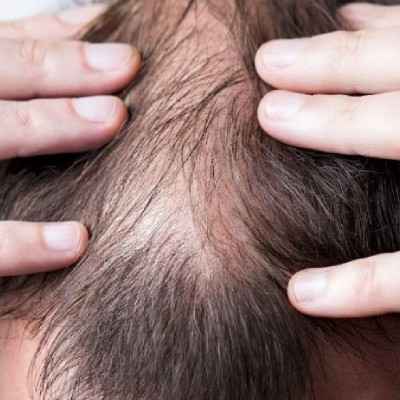Time Frame of Hair Regrowth

28 October 2022

moneshairexperts

Your hair contributes to your uniqueness. Oftentimes, hair is the first thing that people notice about someone’s appearance. Losing it can alter your self-perception and the way you believe others see you. You might be curious about how quickly hair grows back if you suffer hair loss or thinning, whether a medical condition caused or shaved it. The basics of hair and frequently asked questions come first in the response.
Your hair contributes to your uniqueness. Oftentimes, hair is the first thing that people notice about someone’s appearance. Losing it can alter your self-perception and the way you believe others see you. You might be curious about how quickly hair grows back if you suffer hair loss or thinning, whether a medical condition caused or shaved it. The basics of hair and frequently asked questions come first in the response.
- Stages of Hair Growth
- Hair Growth After Hair Cut
- How much time does it Take to Grow Hair After Hair Loss?
- Hair Growth After Hair Shaving or Waxing
- Hair Growth After Chemo
- Hair Growth After Telogen Effluvium Hair Loss
- What Effects Hair Regrowth?
- Tips to Make Hair Regrowth Faster
- When Should I Consult a Hair Doctor?
- Conclusion
Stages of Hair Growth
Follicles are tiny crevices in your skin where hair grows. There are nearly 5 million hair follicles on the body, including about 100,000 on the scalp. Each hair strand develops in four stages:
- Anagen It takes between 2 and 8 years for hair to reach its active growth phase.
- Catagen A transitional period lasts four to six weeks when the hair stops growing.
- Telogen The resting period lasts two to three months when the hair is neither growing nor falling out.
- Exogen The shedding period, lasting from two to five months, is when hair starts to fall out.
Hair Growth After Hair Cut
Each person's rate of hair growth on the head differs depending on various variables, including ethnicity. A 2016 study with little more than 2,000 young people found that:
- Asian hair expands by just under 6 inches annually, or.49 inches per month.
- Black hair grows by under 4 inches per year, or.33 inches per month.
- The white and Latino people grow hair fast, by about.44 inches each month, or 5.3 inches annually.
- For instance, it can take several years for your hair to grow back to its length if it was longer than shoulder-length and you got a fairly short bob. Remember that hair growth for men tends to slow down after age 30.
How much time does it Take to Grow Hair After Hair Loss?
The underlying reason for your hair loss will determine how long it takes for your hair to regrow.
- Pattern Hair Loss Some follicles stop producing hair as you age. It is also known as androgenetic alopecia, pattern hair loss, or hereditary hair loss. This hair loss is often irreversible. Thus, the hair will not regrow. But if you discover it early, you might be able to slow down or prevent further hair loss using prescription medications or a topical minoxidil hair treatment for men's hereditary hair loss.
- Alopecia Areata The scalp is where hair often falls out in small areas. However, it can also appear on the eyebrow, eyelashes, arms, or legs. An autoimmune disease called alopecia areata causes the immune system to assault the hair follicles unintentionally.
- Stress Stress, whether chronic emotional stress or the outcome of an occasion like being hospitalized, having a high fever, losing a loved one, or giving birth, can also cause hair loss.
- Thyroid Problems Hair loss can result from conditions that produce either too much (hyperthyroidism) or too little (hypothyroidism) thyroid hormone. After the thyroid condition has been successfully addressed, hair will grow back.
- Nutritional Deficiencies Hair loss might develop over time if you don't consume enough zinc, iron, or biotin. The shortage could be resolved, resulting in hair growth. However, it may take several months before hair begins to grow.
One may also treat early-stage pattern hair loss with platelet-rich plasma and nutraceuticals.
Unpredictable is alopecia areata. Hair may grow back at any time, but it may also start to thin again. Right now, it's impossible to predict when it will fall out or grow back.
Telogen effluvium, another stress-related hair loss, often begins 2 to 3 months after a stressful incident and can be around for up to 6 months. Hair loss might last for years in situations where there is constant stress.
Hair Growth After Hair Shaving or Waxing
Only the top portion of the hair follicle is removed when you shave your hair. Immediately after shaving, hair will continue to grow, and one or two days later, you may start to notice stubble. On the other hand, when you wax, the entire hair root is taken out of the follicle beneath the skin's surface. Before you even begin to notice stubble, it can take up to two weeks. After three to six weeks, most people wax their hair once again. You may have heard that hair grows back quicker and thicker after waxing or shaving. It is a myth. How quickly or how thickly hair regrows after shaving or waxing is unaffected.
Hair Growth After Chemo
Cancer is typically treated with chemotherapy. Chemotherapy is a potent drug that targets cells that divide quickly, like cancer cells, but it can also target hair follicles on the scalp and in other areas of the body, which can cause rapid hair loss.
Chemo-induced hair growth stages:
- After the chemotherapy has been done for 2 to 3 weeks, hair may begin to grow back naturally. The hair may first regrow as a soft fuzz. After approximately a month, you may start to regrow hair at its regular rate of 4 to 6 inches per year.
- Remember that hair can sometimes take up to a year to grow after chemotherapy.
Hair Growth After Telogen Effluvium Hair Loss
When many hair follicles on the scalp enter the telogen (resting) phase of the growth cycle at once, but the subsequent growth phase is not yet underway, this condition is known as telogen effluvium. The scalp begins to lose all over, but no new hair is developing.
Typically, a medical incident, such as:
- Starting or stopping specific medications, including birth control pills, after labour surgery or high fever.
- Typically, telogen effluvium begins three months after the incident. You might have thin hair, but you won't probably lose all of it.
- After six months have passed since the triggering incident, your hair may begin to grow back. However, in some people, this sort of hair loss might endure for years. You can completely reverse this condition.
What Effects Hair Regrowth?
A variety of things can impact the rate of hair development if you've lost hair and are trying to regrow it, including:
- Genetics
- Hormonal changes
- Medicines for nutritional deficiencies
- Anxiety and stress Other illnesses or ailments
Tips to Make Hair Regrowth Faster

There are no foolproof methods or hair growth tips to make your hair grow more quickly overnight. However, with a little caution, you might be able to lessen some forms of hair loss or strengthen your hair to prevent breakage. Here are some pointers for maintaining healthy hair:
- Consume a healthy diet. Choose foods that are high in iron, vitamin C, and protein.
- If you know your diet is deficient in certain nutrients, such as iron, folic acid, biotin, omega-3, omega-6 fatty acids, or zinc, consult a healthcare practitioner about taking supplements. If you already get the nutrients you require from your diet, there is no need to take supplements.
- Don't use harsh chemicals or a lot of heat on your skin or hair.
- Avoid wearing tight haircuts.
- Massage your scalp before washing your hair to stimulate blood flow to the hair follicles.
- Using shampoo and conditioner that are sulfate-free and contain vitamin E or keratin. A dermatologist can recommend a medicated shampoo for scalp psoriasis.
- Every six to eight weeks, clip your hair to remove split ends.
- Consider applying a topical ointment like topical minoxidil (Rogaine).
- Reduce or stop smoking.
- Although creating a suitable cessation plan for you can be challenging, a doctor can assist you.
- Using a hat will shield your hair from excessive sun exposure.
- Use a wig or hair extensions if you'd want more options in the interim.
- Another option for treating permanent hair loss might be hair loss treatments.
When Should I Consult a Hair Doctor?
If the hair fall continues for a long time, that is when it is better to consult a hair doctor who can help you with your condition. A hair expert can analyze and diagnose the condition and suggest a suitable hair regrowth treatment.
AHS hair doctors have years of experience and guarantee to help you combat your hair loss situation and give you fuller and more dense hair volume. Please book a consultation or visit the clinic to fix the hair loss before it's too late.
Conclusion
About 6 inches of hair grow back each year. Consult a medical expert if you notice hair loss so they can determine the source of your baldness.
If the medical problem is to blame for your hair loss, you must receive the best hair fall treatment that addresses the entire condition, not just its symptoms, for the hair to grow back. The hair experts at the AHS clinic will help you through the procedure and regain your precious hair.
Stay Updated
Subscribe to our email newsletter for helpful tips and valuable resourses
Be an influencer
Join forces with Advanced Hair Studio! Explore exciting collaboration opportunities tailored for influencers. Let's redefine haircare together.
Connect now












